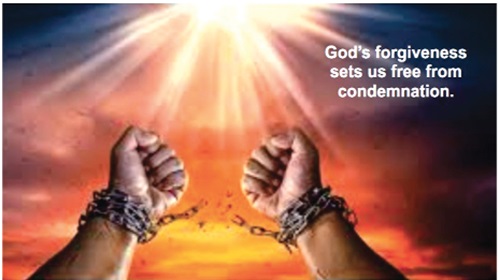An Akan proverb says, “When God picks up his stone, he doesn’t throw it at once.”
Rather, he waits.
So God is often faulted for not acting quickly against guilty individuals.
However, when occultists and idol worshippers pick up their stones, they throw them at once, not bothering if the stones hurt or kill the victims.
That is why, when people want to hit at their enemies, they go to the shrines for quick delivery, leaving out God because he will not act swiftly.
Ironically, when the shrines turn around and strike them—for those who curse people take a bit of the curse themselves—they run to God for help!
Therefore, we worship God and not idols, for God is love and compassionate, and he forgives, giving us the opportunity to repent.
Spared to serve
All the time that Paul persecuted God’s people, the Lord was already holding his stone! If he had thrown it at him at once and destroyed him, he wouldn’t have become a renowned apostle to serve God and humanity.
Check the scene.
A woman is caught in the act of adultery.
The accusers bring her to Jesus, holding stones.
While they seek permission to stone the distressed woman, Jesus delays, writing on the ground.
The prosecutors must have read from Jesus’ writing about their own sinfulness and dropped their stones.
Jesus too had a type of stone, which he held in his heart: the stone of love, compassion, and forgiveness.
“Go and leave your life of sin,” Jesus told the woman, thus saving her from the stone-wielding accusers.
If God throws his stone the moment he picks it up, none of us would be alive.
The reason he doesn’t throw his stone at once is stated in 2 Peter 3:9—"The Lord is . . . patient with you, not wanting anyone to perish, but everyone to come to repentance.”
Fanny Crosby
Every lover of Christian hymns knows about Fanny Crosby.
Becoming blind only at age six weeks, she grew up to become a prolific hymn writer and wrote over 8,000 hymns in her lifetime.
One of her most popular hymns is: “To God be the glory, great things He has done,” sung with passion throughout the world in churches and at Christian gatherings since it was first published in 1875.
A line in that hymn, which glorifies God and depicts the undeniable attribute of the Almighty, is on forgiveness.
Fanny Crosby declares in that line: “The vilest offender who truly believes, that moment from Jesus a pardon receives.”
She describes that phenomenon as “perfect redemption, the purchase of blood,” and by “redemption” she means being rescued and granted liberty.
Therefore, she writes: “O perfect redemption, the purchase of blood / To every believer the promise of God / The vilest offender who truly believes / That moment from Jesus a pardon receives.
These are not just theological jargon but the reality about God’s gift of eternal life.
Vilest offenders
Who is the “vilest offender”? When God created human beings, it didn’t take long before he saw our true colours— "The Lord saw that the wickedness of man was great in the earth, and that every intention of the thoughts of his heart was only evil continually” (Genesis 6:5).
Isaiah also observed this about people: “Your hands are defiled with blood and your fingers with iniquity; your lips have spoken lies; your tongue mutters wickedness.
Your hands are the hands of murderers, and your fingers are filthy with sin. Your lips are full of lies, and your mouth spews corruption” (Isaiah 59:3).
Truth be told: whom are these scriptures describing if not us?
Paul describes himself as chief of sinners: “Christ Jesus came into the world to save sinners, of whom I am the worst" (1 Timothy 1:15).
Like Paul, we are all worst sinners, but God has extended grace to us through Jesus Christ. Vilest offenders like us who truly believe can receive forgiveness.
To be forgiven
To be forgiven is a great gift, because unless we are forgiven, our guilt as sinners remains; and if our guilt remains, we face eternal condemnation.
Condemned people in prison who are later pardoned by the President would feel good—like the condemned Barabbas who was suddenly released while Jesus was crucified.
And this is only about earthly prison and a temporary situation.
Compared to eternal condemnation in a gloomy darkness, the loss is unimaginable.
Hymn writer Fanny Crosby opens that popular hymn with these powerful lyrics: “To God be the glory, great things he has done! / So loved he the world that he gave us his Son / Who yielded his life an atonement for sin / And opened the life-gate that all may go in.”
The “life-gate” is opened for all to go in.
Those who believe and receive God’s forgiveness may enter!
The writer is a publisher, author, writer-trainer and CEO of Step Publishers.
E-mail: lawrence.darmani@gmail.com

